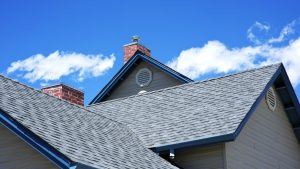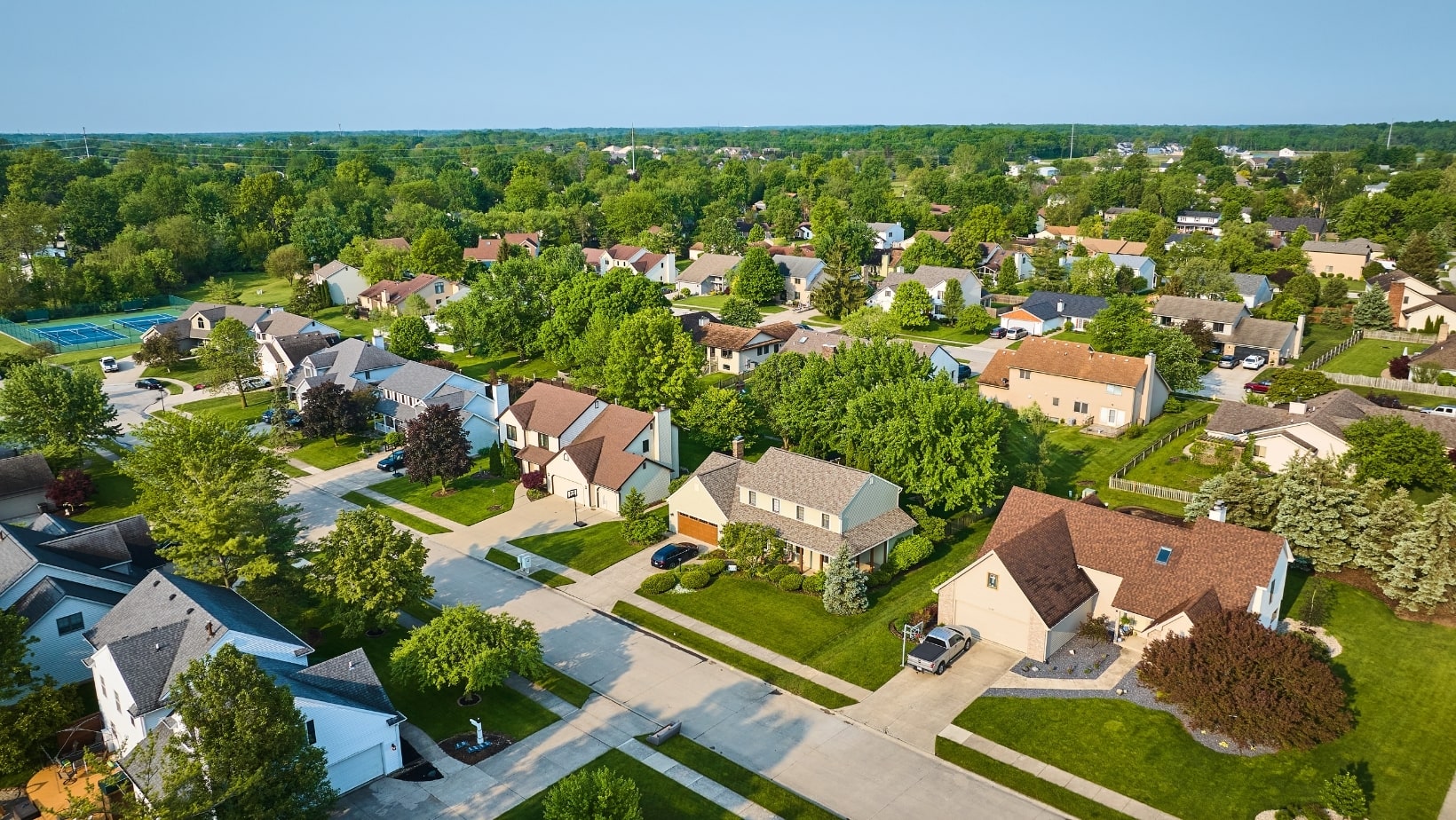Ever caught yourself fascinated by the immaculate condition of a neighborhood park or a community pool that looks as fresh as a natural spring? Well, it’s not just the luck of the community association; there are strategic financial decisions by the HOA board at play.
Smart financial management plays a crucial role in keeping HOAs running smoothly. At the heart of this system lies the HOA reserve fund, which is key to a happy and healthy neighborhood.
HOA reserve funds are like the community’s piggy bank, ensuring there’s enough money set aside for hard times. These reserves are the financial backbone that keeps your neighborhood pristine and functioning without a hitch, even when things unexpectedly go wrong.
So, let’s waste no time and uncover how HOA reserve funds work and how they contribute to the stability and harmony of your neighborhood.

What is an HOA Reserve Fund?
Think of the HOA reserves as a community’s savings account. Every month, just like how you might set aside a little bit of money for a rainy day or that dream vacation, an HOA also saves up in its reserve account.
But instead of trips to tropical islands, the HOA reserve fund is used to keep the community functioning like a well-oiled machine, no matter what.
It’s like having a safety net that catches those big, expensive repairs that sneak up on the neighborhood. The HOA reserve fund ensures that when something important needs fixing, the homeowners association is ready without breaking into a financial sweat.
Now, you might be thinking, ‘Wait, isn’t this what the HOA fees are for?’
I mean…. you’re not wrong, but let’s break it down to clear out the confusion.
How Do Reserve Funds Differ From Operating Funds?
Think of your reserve funds vs your operating funds as your household budget. You have your regular expenses – groceries, utility bills, and maybe your Netflix subscription. The money you set aside to cover these day-to-day needs is your operating fund.
Now, imagine your car breaks down or you need a new roof. That’s where your savings for emergencies or big purchases come in handy, right?
Similarly, the HOA has operating funds for everyday expenses like lawn mowing, snow removal, pool cleaning, security, and keeping the lights on in common areas.
The HOA reserve account, on the other hand, is not for everyday use but for those big projects that come up every few years. It has the association’s reserve funds saved up for those long-term expenses that are expensive but essential.
It’s like the difference between your checking account and your savings account.
So, what kind of things do HOA reserve funds cover? Let’s take a look.
Typical Expenses Covered By Reserve Funds
When I say big projects, what kind of expenses are we talking about? Let’s say the community clubhouse roof starts leaking, the paint on the buildings is peeling like an old sticker, and the playground equipment has gone rusty.
These are the types of major repairs and replacements that the reserve fund is designed to handle.
It covers the costs of:
- Roofing: When any shared area building needs a new roof.
- Repainting: Renewing buildings with a fresh coat of paint to maintain the community’s aesthetic appeal.
- Groundskeeping: Significant landscaping projects or tree replacements.
- Major Equipment Replacement: Items like boilers, elevators, or HVAC systems that are necessary but costly to replace.
- Paving: Repaving roads, driveways, and parking lots within the community.
- Pool Repairs: Occasional repairs or replacements to maintain the community pool and related equipment.
- Playground Equipment: Replacing outdated or broken playground equipment to keep it safe and fun for kids.

Why Is Having a Well-funded Reserve Important for HOAs?
We all love living in a beautiful community where everything seems perfect — lush green parks, pristine pools, and smooth roads. But as time takes its toll, the pool might need urgent repairs, and the roads might end up having more potholes than you can count.
Even worse, what if there’s no money in reserves to fix any of it? This nightmare scenario is all too real for many Homeowners Associations (HOAs) that don’t prioritize a healthy reserve fund.
Here’s why having an adequate reserve fund is not just important but a lifeline for your homeowner’s association:
1. Ensuring Long-term Financial Stability
Sufficient HOA reserve funds protect a community’s financial health and ensure the associations are always prepared.
Picture this: it’s ten years from now, and common property in your neighborhood needs a roof replacement. Without having a solid amount of funds in HOA reserves, the community association would be scrambling to figure out how to pay for it.
But with a well-funded reserve, these hefty bills can be handled smoothly without any financial panic.
2. Avoiding Unexpected Special Assessments
A special assessment is a dreaded surprise fee that HOAs might charge when they don’t have enough in the association reserves.
Inadequate reserve funds often lead to deferred maintenance. This means little issues get ignored until they become huge problems. Then, suddenly, everyone in the community is hit with special assessments to cover these emergency fixes.
Imagine getting a notice that you owe a few hundred dollars extra this month because the HOA needs to fix a broken elevator or replace old pipes. Not fun!
An ample reserve fund keeps HOA finances in check and avoids these unpleasant surprises. The result? Fuller wallets and happier homeowners.
3. Maintaining Property Values
Have you ever heard the saying, ‘You never get a second chance to make a first impression’?
This quote by Will Rogers holds true for your community, too. The good financial health of your HOA is like a badge of honor for your community.
Why? Because potential buyers see an HOA with stable finances as a huge plus as they realize they’re making a sound investment. They know they’re less likely to face a sudden, hefty special assessment or live in a place where common areas are neglected due to lack of funds.
In return, this trust of prospective homeowners keeps property values high for everyone.
4. Complying with State laws and Regulations
Here’s a less exciting but crucial point. Many states have laws requiring associations to maintain certain levels of HOA reserve funds. Falling short can lead to legal headaches and financial penalties.
Imagine getting fined just because the reserves aren’t up to par. Keeping your reserve fund healthy ensures that your HOA is always on the right side of the law, avoiding unnecessary troubles.
But it isn’t just about avoiding legal trouble — it’s also about showing that your association is responsible and well-managed. It gives everyone peace of mind knowing that the community is adhering to the rules and planning for the future.

How are HOA Reserve Funds Managed and Calculated?
So where does an HOA’s reserve fund come from, and how is it managed? Well, it’s all about smart planning and detailed calculations by a homeowner’s association.
See, reserve funds are primarily collected as part of your monthly HOA dues. Each month, a portion of your HOA fees goes into a special reserve fund.
It’s like a shared asset to which every homeowner contributes a portion. These contributions accumulate over time to proactively cover the costs of unexpected expenses.
But how does a homeowner’s association know how much money to set aside for future repairs? The short answer is — by conducting a reserve study.
What is a Reserve Study?
A reserve study is essentially a roadmap for your HOA’s upcoming financial needs. It lays out a reserve funding plan to estimate how much money your HOA should save to cover future expenses.
Without it, managing reserve funds would be like flying blind, hoping everything works out.
Here’s how it works:
A team of experts examines every aspect of your community, from the roofs of the community buildings to the paving stones in the parking lot.
They look at the current state of these components and predict the expected time when each will need to be repaired or replaced.
This detailed analysis helps HOAs anticipate the costs of these projects so they can plan ahead and build their reserves accordingly.
Factors Considered in a Reserve Study
A reserve study isn’t just pure guesswork; it takes a close look at everything and covers many factors for the analysis.
Several important aspects go into conducting a reserve study. These include:
- Age of Property: Older properties might need more frequent repairs, while newer ones might have less immediate needs.
- Current Condition: Regular inspections help determine how well components are holding up and when they might need attention.
- Expected Lifespan of Components: This is a prediction of how long things like the pool pump or the playground equipment will last before they need to be replaced.
- Estimated Costs: Understanding the financial impact of these future expenses is crucial for setting aside the right amount of money.
Frequency of Reserve Studies
Now, a reserve study isn’t a one-and-done deal. To keep things accurate and up-to-date, these studies should be conducted regularly — typically every 3-5 years.
Why? Because things change. Maybe the roof lasted longer than expected, or perhaps the pool needed repairs sooner. Regular updates ensure the reserve fund is always adequate, allowing for adjustments as conditions change.
How Much Should An HOA Have In Reserves?
It’s not just about having some money stashed away; it’s about having enough to cover future expenses. So, how much should an HOA actually have in reserves?
The answer lies in understanding a key concept called ‘percent funded.’
- Percentage Funded: It refers to the proportion of the goal of a reserve funding plan that has been achieved, typically expressed as a percentage.For example, if an HOA has a funding goal of $10,000 and has raised $7,500, this means the project is 75% funded. It’s like a report card for your HOA’s finances.
So, what’s the magic number? As a general rule, HOAs should aim to be at least 70% funded. Why 70%? Because anything below this can spell trouble, leaving your association members struggling to cover unexpected costs.
But the golden standard is hitting that 100% mark. Being fully funded means your HOA is prepared for anything the next 30 years might throw its way.
What Can an HOA Do If There Are Insufficient Reserve Funds?
What if your HOA reserve funds fall short? It’s a stressful scenario no one wants, but it happens more often than you might think.
But don’t worry, there’s a way out. One practical solution is to consider an HOA loan. Here’s how it works and why it might be a smart move:
Getting HOA Loans
These loans are specifically designed for homeowners’ associations to help cover large expenses when reserve funds run out. These loans can be used to fund major projects—think new roofs, upgraded elevators, or emergency repair.
By securing a loan, an HOA can replenish its reserves and tackle these costs without the immediate financial strain on homeowners. It’s a smart move to keep a community running frictionlessly.
Seeking Expert Help
Now, the process of securing loans can be a bit intimidating. But here’s the good news: you don’t have to do it alone. Partnering with industry specialists can make a huge difference.
These experts offer the guidance and support you need throughout the lending process. They can help you find the best loan options, understand the fine print, and negotiate with lenders. Basically, they make sure you get the best deal and avoid any pitfalls.

Conclusion
Alright, let’s wrap this up! HOA reserve funds are the cornerstone of any homeowners association, ensuring the community’s long-term health and stability.
Properly managing these funds means less stress and more peace of mind for everyone. You’re not just protecting the neighborhood; you’re making it a wonderful place to live.
Typically, the ideal funding level is one hundred percent, but being seventy percent funded is also considered a good practice. Sufficient reserve funds result in fewer financial surprises, better worth of the community’s assets, and happier homeowners.
Got a bit lower reserve funds than recommended? Don’t stress! Give us a shout for professional advice, and let’s chat about how we can help you secure an HOA loan.
Don’t leave your community’s future to chance. Together, we’ll make sure your community is ready for anything!



